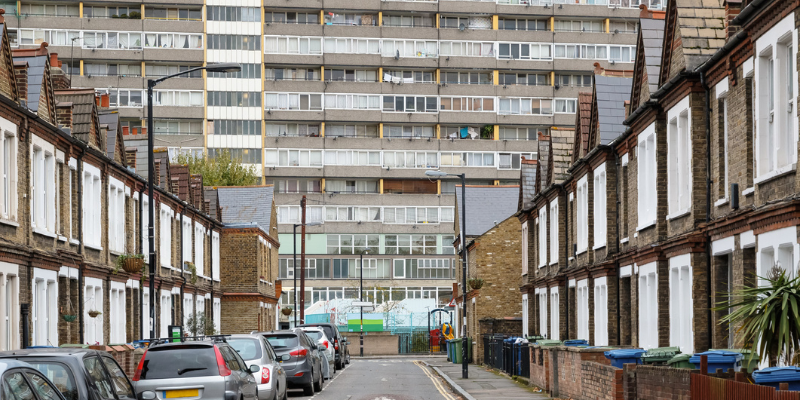
The Social Housing (Regulation) Bill was introduced on the back of the 2020 Social Housing White Paper to address concerns raised after the tragic Grenfell Tower fire of 2017. The Bill aims to introduce transformational change to those living in social housing to empower them, provide greater redress, ensure better regulation and improve the quality of social housing. The Bill will do this by making provisions about the regulation of social housing and the terms of approved schemes for the investigation of housing complaints.
The Bill itself has already been passed through the House of Commons and House of Lords and is in its final stages before being put forward to be given Royal Assent, to become law.
Various amendments have been made to the Bill throughout each of the parliamentary stages, but the one relevant to employment is the amendment that would require all social housing managers to have a professional qualification. However, until legislation has been passed and guidance published, nothing is confirmed nor is it clear how these new measures would work in practice.
At this stage, we can only share the proposed changes as set out within the Bill and the Commons Amendments publication. The Commons amendments are now being considered; however, both the House of Lords and the House of Commons must agree with the amendments and the exact wording of the Bill before it can be ready for Royal Assent.
It is also important to note that once a Bill has been made a law, then it can either be effective immediately, after a set period or after a commencement order.
The Bill and amendments make the following proposed changes to standards relating to competence and conduct:
Clause 21 of the Bill: Standards relating to competence and conduct
Proposed insert after section 194 of the Housing and Regeneration Act 2008:
- “The regulator may set standards for registered providers in matters relating to the competence and conduct of individuals involved in the provision of services in connection with the management of social housing.
- Standards under subsection (1) may, in particular, require registered providers to comply with specified rules about
(a) the knowledge, skills and experience to be required of individuals involved in the provision of services in connection with the management of social housing, and
(b)the conduct to be expected of such individuals in their dealings with tenants. - Standards under subsection (1) may require registered providers to secure that their relevant managers
(a) have a specified qualification in housing management or type of qualification in housing management, or
(b) are working towards such a qualification or type of qualification. - A “relevant manager” means
(a) a senior housing executive, or
(b) a senior housing manager. - A qualification or type of qualification specified for a senior housing executive may only be
(a) a foundation degree, or
(b) a qualification or type of qualification regulated by the Office of Qualifications and Examinations Regulation which is of a level not exceeding level 5. - A qualification or type of qualification specified for a senior housing manager may only be a qualification or type of qualification regulated by the Office of Qualifications and Examinations Regulation which is of a level not exceeding level 4.
- Except as provided by subsections (3) to (6), standards under subsection (1) may not require registered providers to comply with rules about the qualifications to be required of relevant individuals.
- In this section, “senior housing executive” means a relevant individual who
(a) is an employee or officer of the registered provider,
(b) has responsibility (solely or jointly) for the day to day management of the provision of services in connection with the management of social housing provided by the provider, and
(c) is part of the provider’s senior management. - For the purposes of this section, an individual is part of a registered provider’s senior management if the individual plays a significant role in
(a) the making of decisions about how the whole or a substantial part of the activities of the provider which relate to social housing are to be managed or organised, or
(b) the management or organisation of the whole or a substantial part of such activities. - In this section, “senior housing manager” means a relevant individual who
(a) is an employee of the registered provider, and
(b) is a senior housing and property manager for the registered provider. - For the purposes of subsection (10)(b), whether an individual is a senior housing and property manager is to be determined by reference to the description of the occupation of senior housing and property management published by the Institute for Apprenticeships and Technical Education under section ZA10(5) of the Apprenticeships, Skills, Children and Learning Act 2009.
- (12) The references in subsections (5) and (6) to the level of a qualification are to the level assigned to a qualification by virtue of general conditions set and published by the Office of Qualifications and Examinations Regulation under section 134 of the Apprenticeships, Skills, Children and Learning Act 2009.
- (13) For the purposes of this section, “employee” includes a person employed under a contract of apprenticeship.”
Next steps
Further guidance is expected from the Government, once the Bill has become law, and from there, it will become clear as to how employment practices such as recruitment, training, and performance management for instance, may be impacted and therefore what policies and new practices may need to be introduced by employers.
For those businesses that will be impacted by this Bill, it would be helpful to start to inform and share details of the proposals so that employees can be engaged in any change to working practices that may be required.
We are here to help
If you would like to speak to a member of our team, or you are considering outsourcing your Health and Safety, Payroll, or HR, you can contact us on 0844 324 5840 or get in touch with us here.








